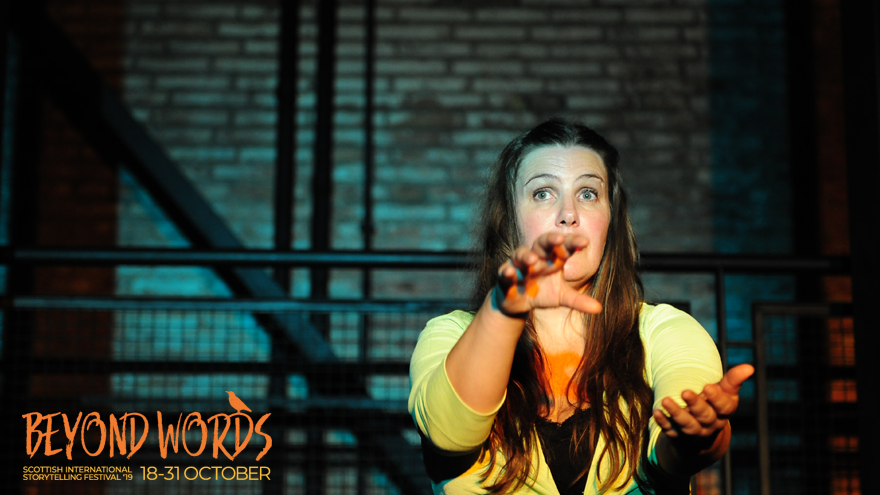Tell us an interesting feature of traditional storytelling in your country.
Troll is an important part of the traditional stories told, and there are some stories all children grows up with. In Norway, we are so lucky to have the Cultural Rucksack Programme. The Cultural Rucksack programme is part of the government’s cultural policy. It is a national effort in which the cultural and education sectors cooperate on providing school pupils throughout the country with the opportunity to become acquainted with, understand and enjoy all forms of artistic and cultural expression at the professional level. Today, every pupil at primary and lower secondary school in the country is able to participate in the programme. This means touring for a lot of storytellers, and it has made it possible for storytellers to establish themselves outside the big cities.
How did you become a storyteller?
I became a storyteller through studies in drama and theatre, where we have studies in oral storytelling. I am now myself responsible for these studies at OsloMet metropolitan university. I became a storyteller because I was so lucky to experience storytellers and then I realized that I had grown up surrounded by people who used storytelling active in their daily life.
What is so magic about storytelling?
I am maybe not so happy to use the magic, for me storytelling is an artform and as a storyteller, I have a responsibility both for the tradition, but also for my contemporary time. I am telling stories because I want to, through folktales and myths, and give a voice to those who cannot speak for themselves. For me oral storytelling is not a solo performance, but a community that experience something together. And in this community, each individual has their own private take on the story. Maybe that could be magic, the inner creation that each listener and storyteller have, it is like a secret.
Do you have a favourite story?
I have many, I primarily tell Norwegian and Nordic folktales and mythology, and what I like is the down-to-earth, the mix of humour and seriousness.
What was the last story you performed or told?
My last story is the story about the warrior woman called Hervor from Norse poetry.
Is storytelling becoming a lost art?
Well, storytelling will always be there, but the art might not, or it might change.
What is the biggest challenge storytellers face?
Recruiting, I think we need to make sure that younger generation of storytellers finds the place and space, and accept that they have other ideas on what oral storytelling might be. This, without losing our own ideas about oral storytelling.
This year’s Festival theme is Beyond Words. What does Beyond Words mean for you?
For me it is about the experiences behind the folktales and myths, and about the inner creation that goes on within the storyteller and the listener.
Can you tell us about a time when you have been storytelling that connected you with another teller or listener beyond words?
Recently, I had a student who told a story about her Arabic father, who escaped war, and she had no longer contact with her father. In a short poetic story about culture and escape, she managed to disseminate culture and tradition that I as a listener could recognize myself in.
How do you imagine being part of the SISF 2019 will be?
Inspiring and sobering.
Indigenous culture/language is a focus for SISF 2019: How important is heritage and culture for you?
It is important as it in a very practical way give me my repertoire, but it is also about belonging to something and it is a reference in my life.
As part of #SISFBeyondWords, our Global Lab explores the principles and goals of The Earth Charter Initiative and how storytelling can positively impact on this. What do you feel is the role of storytellers in the 21st century?
A storyteller is an artist, but also a facilitator and trainer. Through this, the storyteller brings competences into the society that other needs in public and private life. The storyteller brings past experiences to reflect upon.





